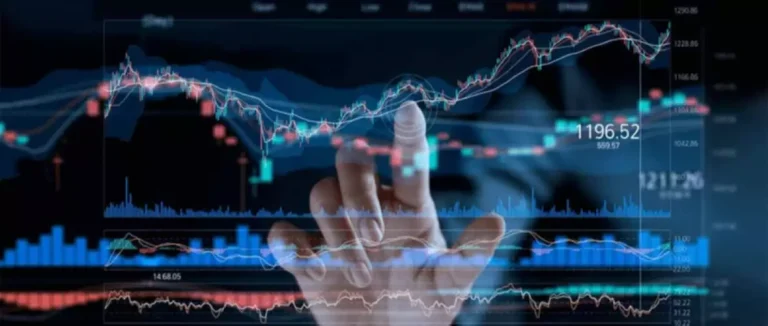This allows traders to have extra management over the execution of their trades and probably achieve better costs. You are placing your order instantly in the digital trading system of the stock exchange; this curtails any lack of time in calling your dealer. Better still, DMA additionally enables you to use what is recognized as algorithm trading or program buying and selling during which pc programs take selections of buying and selling in cut up seconds without waiting for your command. Once you name your broker for putting an order, your broker has to manually place your order into the trading system of the stock trade through his buying and selling terminal. Because traders have direct entry to the exchange’s order guide, they are responsible for managing the danger of their trades, together with ensuring that they have enough collateral to cover any potential losses.
The round defines DMA and SA, outlines the duties of Broker-Dealers, and emphasizes due diligence, risk management, and operational procedures. Overall, DMA is usually a useful tool for traders who are in search of more control over the execution of their trades and who’re keen to take on the extra danger management duties that it entails. It is important for traders to fastidiously contemplate the pros and cons of DMA before deciding whether it’s the proper choice for his or her wants. One key difference between DMA and co-location servers is that DMA allows merchants to have direct entry to the exchange’s order e-book, while co-location servers simply velocity up the transmission of orders to the exchange. DMA also typically requires merchants to have a direct buying and selling account with the change, whereas co-location servers can be utilized by any trader who is in a position to pay for the service.
Ifsca Introduces Direct Market Access And Sponsored Access: Remodeling Present City Into A World Securities Trading Hub
Both SEBI and IFSCA mandate that stockbrokers maintain an audit trail for all DMA orders and trades. Stockbrokers are answerable for implementing systems that may establish the precise person IDs for all DMA transactions. IFSCA is introducing sponsored access in India, a move expected to draw extra traders to discover buying and selling alternatives in the derivative segment.
However, to make sure danger management and mitigation, orders routed through clients’ buying and selling functions through SA must move by way of the pre-trade risk-management layer offered by the stock trade. Parameters for these risk- administration controls are decided and configured by the broker-dealer registered with IFSCA and authorised to provide SA amenities. Before extending the SA facility, broker-dealers must enter into agreements with traders and undertake due diligence. Stock exchanges are responsible for verifying the presence of the agreement between the broker-dealer and the shopper earlier than approving the SA facility.
Sebi Allows Direct Market Access To Registered Fpis For Taking Part In Etcds
A copy of this circular is on the market on the net site of the International Financial Services Centres Authority at The Stock Exchanges shall maintain statistical information on DMA/SA trades and supply data on the identical to IFSCA on a necessity basis. The Stock Exchanges shall put in place the necessary methods to establish and distinguish DMA/SA orders and trades from other orders and trades. The Stock Exchanges shall have the operational flexibility to specify further safeguards and situations as they might deem fit for permitting DMA/SA services to their Broker-Dealers. The Stock Exchange shall be positive that the agreement between the Broker-Dealer and its shopper are in place previous to approving the power of SA. The Broker-Dealers are required to maintain up proper records of such due diligence.

They have to set buying and selling limits, publicity limits, and place limits for all DMA purchasers primarily based on danger assessment, credit score quality, and available margins. Compliance Officer overseeing compliance or risk-management capabilities, such as the Chief Risk Officer or Chief Compliance Officer, are liable for setting these limits. Stockbrokers should be sure that all DMA orders pass via electronic/automated risk-management methods, which validate danger parameters corresponding to quantity limits, value vary checks, order worth, and credit score checks earlier than orders are launched to the inventory change. Operational flexibility is granted to inventory exchanges to establish essential measures, procedures, and pointers for DMA orders. These embody threat management, danger mitigation, know-how and methods audit policies, consumer eligibility for DMA services, cybersecurity, cyber resilience, entry control, and incident response.
This could be difficult for merchants who are not experienced in danger administration. In India, DMA is out there for each equities and derivatives markets. To use DMA, merchants must have a buying and selling account with a DMA-enabled broker, in addition to a depository participant account and a clearing member account. They must also meet certain eligibility standards and complete the mandatory documentation.
Ifsca Clarification Relating To Direct Market Entry (dma) Facility
The democratisation of order placement, increased transparency, and improved danger management will benefit investors and contribute to the growth and evolution of the securities market. While DMA enables traders to immediately access inventory exchange buying and selling techniques, they are still certain to using the stockbroker’s trading system. This arrangement raises concerns as stockbrokers can doubtlessly achieve entry to confidential and proprietary trading strategies employed by buyers.
- Stockbrokers must be sure that all DMA orders cross by way of electronic/automated risk-management methods, which validate risk parameters corresponding to quantity limits, price range checks, order value, and credit score checks earlier than orders are released to the stock trade.
- Individual customers at the shopper finish shall also be licensed by the Broker-Dealer primarily based on minimal standards.
- Time was when buying and selling at inventory exchanges used to look like a shouting match in a fish market.
- Parameters for these risk- administration controls are determined and configured by the broker-dealer registered with IFSCA and authorised to offer SA facilities.
- DMA can present purchasers with extraordinarily fast and environment friendly execution.
Direct Market Access (DMA) is a facility which allows Members to supply their clients direct access to the change trading system via their Computer to Computer Link (CTCL) infrastructure without handbook intervention by them. DMA facility is presently permitted by SEBI solely to institutional shoppers and additional prolonged to investment managers. Such institutional clients might use the services of an funding manager or advisor or portfolio supervisor (“Investment Manager”) to avail the DMA facility, as talked about within the SEBI round.
All DMA/SA orders have to be offered to the market for matching. The Broker-Dealers using DMA facility for routing shopper orders shall not be permitted to cross trades of their clients with each other. The shoppers utilizing and sub-delegating the SA facility, shall not be permitted to cross trades of the sub-delegatees with each other.

Direct market access (DMA) and co-location servers are two different types of buying and selling techniques which are used to facilitate the execution of trades. The consumer is a resident of a country whose securities market regulator is a signatory to the IOSCO-MMoU or a signatory to the bilateral Memorandum of Understanding with the Authority. The orders routed through What is Direct Market Access the client’s trading application via SA ought to move through the controls / pre-trade risk management layer provided by the Stock Exchange with the parameters being determined and configured by the Broker-Dealer.
Direct Market Access To Institutional Traders
This will, of course, be subject to necessary amendments to byelaws and rules of the inventory exchanges. Secondly, DMA supplies better execution of your buying and selling technique. You would not discover your dealer running forward of you to buy or promote when he comes to find out about your massive orders. In different words, DMA leaves no scope for what is recognized as front-running. Your dealer would, actually, not even know which stocks you are at present selecting or which shares you would possibly be currently dumping.
Earlier, all buying and selling used to happen by physical interaction among brokers on the trading ground of stock exchanges. But things have changed now, without having for face-to-face interaction. Our stock exchanges—National Stock Exchange and Bombay Stock Exchange—use electronic buying and selling techniques which mechanically match one of the best buy order with the most effective sell order, with out consumers and sellers or their brokers actually coming involved with each other. Direct market access (DMA) is a trading system that enables merchants to put orders immediately into the exchange’s order book, bypassing the need for a dealer or different intermediary.
The Broker-Dealers shall follow the same logic/priorities utilized by the Exchange to treat DMA client orders. In this regard, the Broker-Dealers are required to take care of all activities/ alerts log with audit trail facility. The DMA Server shall have internally generated unique identifier for all such consumer order/trades.
The essence of the trade is its Electronic Systems, a mechanism that compares a purchase order and a sell order in opposition to a bid and ask worth to ascertain a commerce. Electronic techniques are used to different extents for buying and selling in financial markets, various among markets, across forms of transactions and clients, and between the completely different phases of the trade process. Presently traders commerce securities by putting the order directly on stock exchange order books and electronic communications community brokers (ECNs) via Direct Market Access (DMA trading). DMA encourages merchants to become market makers as a substitute of price makers.
Institutions providing DMA providers should be registered with SEBI as buying and selling members of the relevant exchange. Hence, When mixed with good algos and low latency trade servers. DMA can provide clients with extremely quick and environment friendly execution. DMA is a system that allows traders to position orders immediately into the exchange’s order e-book, bypassing the necessity for a broker or other middleman. This gives merchants more control over the execution of their trades and doubtlessly allows them to attain better costs.

